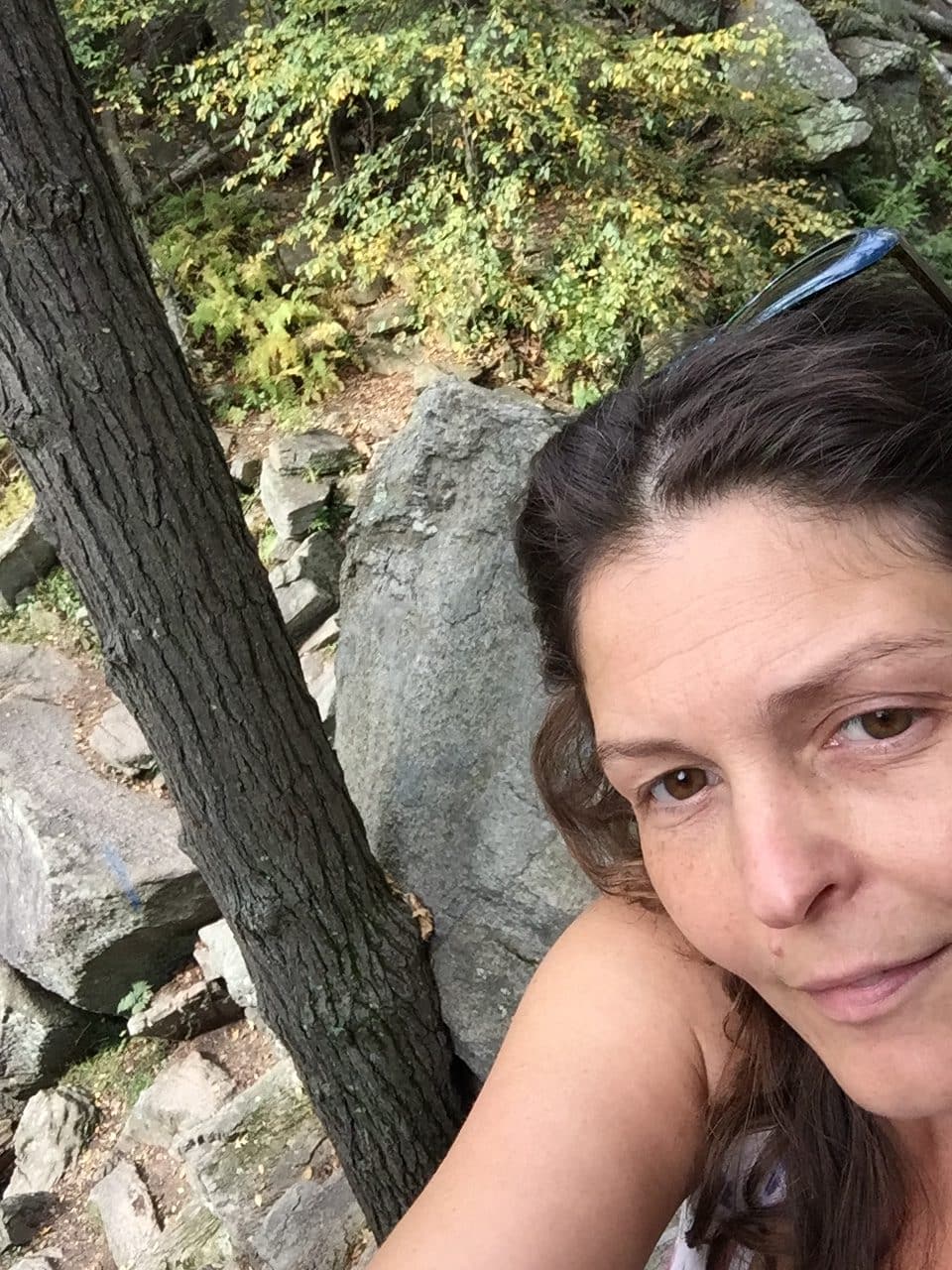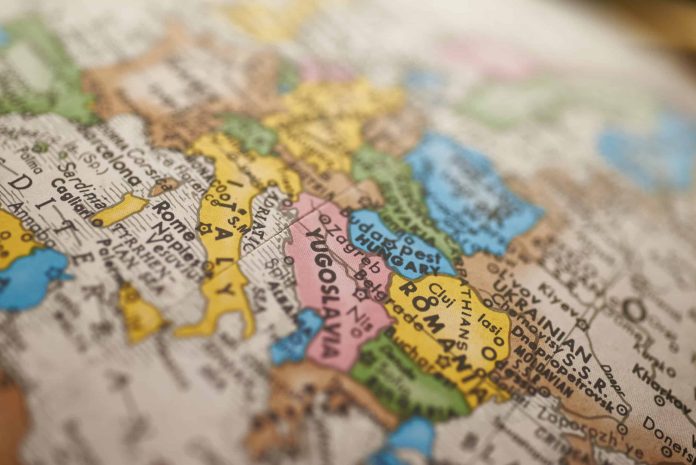Surviving communism meant surviving Ceaușescu, the president of Romania. He was Romanian-born, came up the Communist Party ranks, and, in 1965, became the supreme leader who imposed his whim on every decision made on behalf of the country and its people. I knew this from the fear I sensed around me, the hushed conversations among adults I caught by eavesdropping. By the time I was old enough to ask questions, the broken spirit and indifference, and the impotence of adults around me, was crushing me.
“Ceaușescu’s reasoning for this scarcity is that it will let Romania remain a sovereign nation even though it’s inside the Soviet Union’s sphere of influence,” my father explained, from his chair wedged between the kitchen table and radiator, as he adjusted the radio’s antenna to minimize the static.
“Before the Second World War, some international leaders had the power to split our area into spheres of influence.”
It felt impossible to understand how a few countries could have so much power back then.
“After the allies–Britain, the United States, and the Soviet Union–won the Second World War, they agreed that the Soviet Union, established in 1922 as a set of four republics, would have influence over the countries around it. The Soviets imposed communism and Romania followed.”
They made us live in fear, without heat, hot water, gas for cooking, or, sometimes, even food. As teenagers, my sister and I warmed up water overnight on the stove so we could take sponge baths when either mom or dad or grandma wanted a turn to bathe on Wednesday, the only evening with hot water. What made it worse was that I heard no hope for change from my father or anyone else. No one even mentioned the possibility of change. This reinforced what I felt: fear, and doubt in the government’s commitment to its citizens. I felt powerless. If ‘political’ means relating to the government and public affairs, I lived involuntarily deprived of political agency.
In high school, I discovered Alexandru Andrieș, an architect and folk musician who played the acoustic guitar. His lyrics were full of innuendos, implications, irony, and plays on words as he questioned everything from the benefits of having two umbrellas to how one might guess that their boss was an informant for the Securitate, the secret police, the force that distributed fear:
“No one is perfect like him –
the boss!
Both friendly and smart –
what a human!” (my translation)
Andrieș’s art felt like resistance, and, through verses that had nuanced meaning, he became my first teacher of political thought. Following his puns and snarky acoustic music, I felt I could subversively question the political structure imposed by Ceaușescu and the Soviet influence. When I aligned myself with Andries’ talent and wisdom, I engaged in politics. I had political agency.
Then, in December 1989, my last year in high school, communism ended abruptly, through the Revolution. I imagine some adults saw this coming, especially those who had access to Radio Free Europe, a shortwave radio channel transmitted from Munich: all around us in the Soviet sphere of influence the people were out in the streets. But I didn’t. When the army executed Ceaușescu and his wife and transmitted the shooting live on TV, I believed it wasn’t real, that it was rigged so the government could gather data on who celebrated their death in the streets. I thought he would reappear to throw us all in prison.
This deep mistrust is still lodged inside. Not as powerful as decades ago, but enough for me to know that my personal lived experience then and now is the result of the social and political structures around me. And so, I must acknowledge the impact that society and governmental politics have on my life and I must remember to carefully consider how these structures inform and shape my decisions. If I don’t, I surrender my newly-earned privilege of political agency.
Years of journaling, and I am still unpacking the impact of growing up under Ceaușescu’s communist-born dictatorship. This is how I discovered that I felt powerless and unsafe unless I could act of my own accord. Once in America, to feel powerful, I threw myself at every opportunity; my only goal was to claim the experience. I jumped from one career to another in search of one that met my interests, my desire for quality of life, and my financial needs. One where I didn’t have to sacrifice one critical aspect for another.
To feel safe, I chose to be a single parent despite the stigma that almost silenced me. My limited means meant I didn’t contribute to the lunchtime banter about the destination for spring break, the latest vehicle model, or the newest restaurant. At children’s birthday parties, I found myself pegged as the wild one, in the questions that my friends asked, and indirectly in their husbands’ gaze. I didn’t confront them.
During the isolation imposed by COVID-19, I had time to count my blessings:
- My current job as a teacher’s assistant is the only one I’ve had where I don’t need to sacrifice any aspect of myself.
- Sixteen years of stay-cations have prepared me to have fun at home.
- Friends are those who choose not to peg me but to be mutually empowering.
To me, the meaning of ‘political’ involves one’s awareness of the omnipresent interpersonal power dynamics, not just those related to the government. Under communism, searching for a job I enjoyed would not have been possible, and seeking friendships based on trust could have led me to prison. My definition of ‘political’ includes the freedom to make choices and decisions informed by this awareness.
When I acknowledge power imbalances, I am political. I heal because I am not blindly trapped in an unhealthy pattern. This awareness empowered me to leave a safe and decently paid job because of a misogynistic boss, though I knew society might frown upon me for shifting to one that paid less. But it was my decision.
When I question the cultural standards and expectations for being a good citizen that led me to leave an unhealthy marriage and become a single parent, I am political because I choose what is safe for my child and me. I heal from the fear of not being good.
When I write and publish, despite my imperfect immigrant’s language, so that my experience becomes public and is included, I am political because I add my immigrant and single-parent experience to the narrative of what it means to be American. I heal from the fear of not belonging.
***
Statement on Black Lives Matter and support for social change.

Wow! What a powerful story with keen insight into a world unknown to me. Bravo to the brave Ms. Oana. At last, you are free.
I strive to live my life as authentically as you do, Corina! It’s the only way to empowerment and healing. Thank for you for sharing your journey.